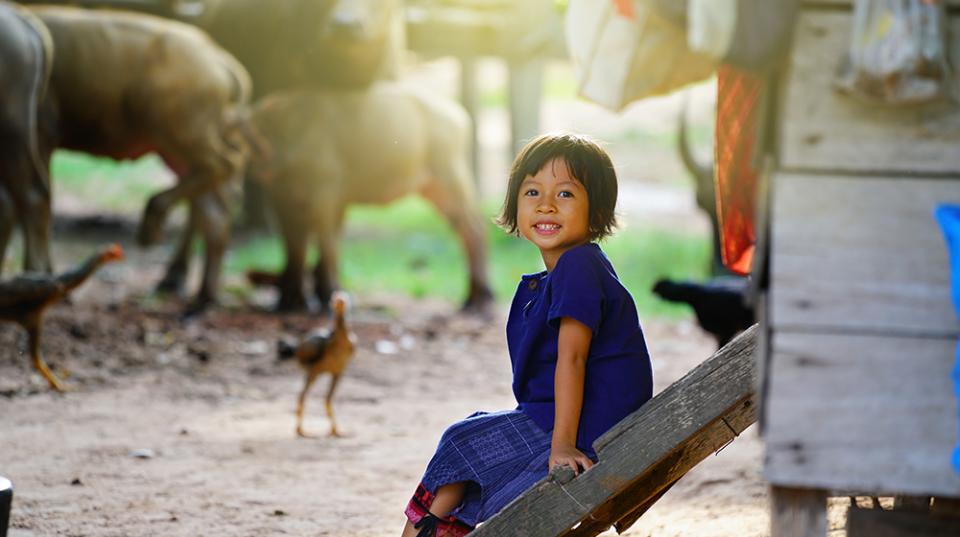Overview
This project developed and trialed two assessment tools to assess the impact of health literacy related to health security in Cambodia.
Many health security threats, including threats arising from interactions between human and animal health, have arisen in remote areas in South East Asia, including in areas with many minority language groups. These people often live in extremely fragile circumstances with many risks to their daily existence and livelihoods, which means they cannot keep all potential risks as front-of-mind issues. In addition, their relationships with agricultural, health and other organisations is often influenced by cultural differences.
The focus of this project was on the knowledge held within villages about how people can raise and live around animals in ways that are safe and beneficial for both humans and animals. in the research is not only about the knowledge people have but also how people share and apply knowledge as families and as a village in daily life, and in various seasonal circumstances. The project worked with national, provincial and local agencies and leaders in Cambodia.
This project is part of the Research for One Health Systems Strengthening Program co-funded with DFAT addressing zoonoses, antimicrobial resistance and systems strengthening within the Asia Pacific.
Project outcomes
- Developed an interview-based tool that provides useful indicators of connected-and-live knowledge about living around and raising animals in ways that are healthy for humans, animals and the environment at the village level.
- The model is potentially scalable to other districts to implement independently. However, there is a need for further research and development, particularly evaluating the extent to which villages actually implement their action plans, and the extent to which they achieve improvements in connected-and-live knowledge and real benefits for people and animals.




